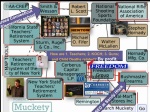And if thy brother, a Hebrew man, or a Hebrew woman, be sold unto thee, and serve thee six years; then in the seventh year thou shalt let him go free from thee. And when thou sendest him out free from thee, thou shalt not let him go away empty: thou shalt furnish him liberally out of thy flock, and out of thy floor, and out of thy winepress: of that wherewith the LORD thy God hath blessed thee thou shalt give unto him. And thou shalt remember that thou wast a bondman in the land of Egypt, and the LORD thy God redeemed thee: therefore I command thee this thing today.
— Deuteronomy 15: 12–15
The Case for Reparations not Semitic, but Hamitic.
- PRETORIA, SOUTH AFRICA – JUNE 28: Anti-American demonstrators march through the streets while protesting against the official visit of U.S. President Barack Obama June 28, 2013 in Pretoria, South Africa. Organized by the Congress of South African Trade Unions, about 800 people marched through Pretoria to voice their opposition to Obama and U.S. policy in South Africa and around the world. (Photo by Chip Somodevilla/Getty Images)
Dear Vice President Biden, Sir,
Please allow our incarcerated children, 2.5 million Black Americans, (Hamitic peoples), to pardon (return) home to Africa, now. No crime can be worse than all the wars that our Black children participated in;or those acts committed against their Hamitic Ancestors, packed onto ships, to come to this land of the Native Americans,at that time, stolen from the continent of Africa by Israelis and other Europeans.“
- Native Americans
- By any means necessary
- Workers subcontracted by Shell Oil Company clean up an oil spill from an abandoned Shell Petroleum Development Company well in Oloibiri, Niger Delta. Wellhead 14 was closed in 1977 but has been leaking for years, and in June of 2004 it finally released an oil spill of over 20,000 barrels of crude oil.
- Basics: Harrison County Juvenile Detention Center in Biloxi, Mississippi is operated by Mississippi Security Services (formerly the Biloxi City Jail) currently run by Director Warden. A fire in 1982 killed 27 inmates. There is currently a lawsuit against them, which has forced them to reduce their inmate population. They must now maintain an 8:1 inmate to staff ratio.
- What’s in the chemical war weapon? KOCH #BOYCOTTCOKE to find out
Among the Jews of Israel, reparations provoked violent and venomous reactions ranging from denunciation to assassination plots. From 1953 to 1963, the reparations money funded about a third of the total investment in Israel’s electrical system, which tripled its capacity, and nearly half the total investment in the railways.”
- Nahum Goldman, the president of the Jewish Claims Commission (center), signs 1952 reparations agreements between Germany and Israel. The two delegations entered the room by different doors, and the ceremony was carried out in silence. (Associated Press)
In Chicago and across the country, whites looking to achieve the American dream could rely on a legitimate credit system backed by the government. Blacks were herded into the sights of unscrupulous lenders who took them for money and for sport. “It was like people who like to go out and shoot lions in Africa. It was the same thrill,” a housing attorney told the historian Beryl
Among the Jews of Israel, reparations provoked violent and venomous reactions ranging from denunciation to assassination plots.
- KIRIAT ARBAA:Young Israeli settlers play with army guns 14 April 1994 in a weapons exhibition in Kiriat Arbaa, West Bank commemorating Israel’s independence. Israel celebrates 14 April the 46th anniversary of the creation of the state. (Photo credit should read MENAHEM KAHANA/AFP/Getty Images)
- America Israel for Profit Prison Industry and Military acessible labor Defence Tax free
“Wells Fargo mortgage had an emerging-markets unit that specifically targeted black churches.” Semetic
West Germany ultimately agreed to pay Israel 3.45 billion deutsche marks, or more than $7 billion in today’s dollars. Individual reparations claims followed—for psychological trauma, for offense to Jewish honor, for halting law careers, for life insurance, for time spent in concentration camps. Seventeen percent of funds went toward purchasing ships. “By the end of 1961, these reparations vessels constituted two-thirds of the Israeli merchant fleet,” writes the Israeli historian Tom Segev in his book The Seventh Million. “From 1953 to 1963, the reparations money funded about a third of the total investment in Israel’s electrical system, which tripled its capacity, and nearly half the total investment in the railways.”
North Lawndale’s Jewish People’s Institute actively encouraged blacks to move into the neighborhood; North Lawndale seemed to offer promising terrain. But out in the tall grass, highwaymen, nefarious as any Clarksdale kleptocrat, were lying in wait.
Three months after Clyde Ross moved into his house, the boiler blew out. This would normally be a homeowner’s responsibility, but in fact, Ross was not really a homeowner. His payments were made to the seller, not the bank. And Ross had not signed a normal mortgage. He’d bought “on contract”: a predatory agreement that combined all the responsibilities of homeownership with all the disadvantages of renting—while offering the benefits of neither. Ross had bought his house for $27,500. The seller, not the previous homeowner but a new kind of middleman, had bought it for only $12,000 six months before selling it to Ross. In a contract sale, the seller kept the deed until the contract was paid in full—and, unlike with a normal mortgage, Ross would acquire no equity in the meantime. If he missed a single payment, he would immediately forfeit his $1,000 down payment, all his monthly payments, and the property itself.
The men who peddled contracts in North Lawndale would sell homes at inflated prices and then evict families who could not pay—taking their down payment and their monthly installments as profit. Then they’d bring in another black family, rinse, and repeat. “He loads them up with payments they can’t meet,” an office secretary told The Chicago Daily News of her boss, the speculator Lou Fushanis, in 1963. “Then he takes the property away from them. He’s sold some of the buildings three or four times.”




























































